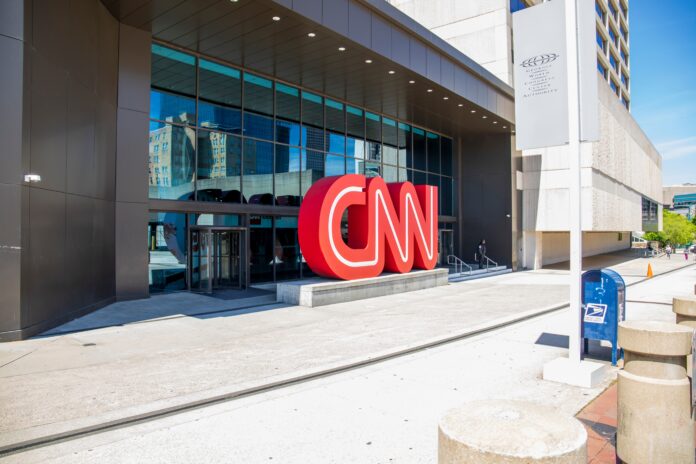
The CNN defamation saga underscores the precarious balance between free press and accountability, a tussle at the heart of intelligent news reporting.
At a Glance
- The defamation trial centers on CNN’s false accusations against Zachary Young.
- A Florida jury awarded Young $5 million following the defamation case.
- The trial exemplifies declining public trust in mainstream media.
- Communications within CNN highlighted malice in their reporting practices.
CNN’s Misstep in Media Reporting
In a landmark defamation case, CNN found itself on the receiving end of a $5 million verdict for falsely accusing Zachary Young of operating a “black market” during Afghanistan evacuations. The case, brought forth in Florida, illuminated critical issues in media accountability and the standards—or lack thereof—upheld by major networks. Young, a former US security contractor, found his reputation under siege due to reckless journalistic narratives. The jury’s decision sends a stinging message to mainstream media, highlighting the dire need for unbiased reporting.
This trial is seen as a blueprint for possible media crackdowns, especially during a second Trump administration. With CNN choosing to defend its stance in court while other networks might back down, the implications are substantial for media organizations. The aim seemed less about one man’s reputation and more about the fabric of news dissemination itself. Young’s attorneys illustrated CNN’s internal communications as a damning insight into the network’s approach to news—describing the story as “80% emotion, 20% observed fact.” Such admissions showcase the broader backlash against fake news and partial truths in media reporting.
Mainstream Media and Trust Issues
As CNN settled the defamation case with Young before punitive damages were assessed, the courtroom battle was emblematic of the current media landscape. Internal CNN messages unearthed during the trial indicated an intent to harm Young’s reputation, challenging the claim of accurate reporting by CNN staff. Although the case results appeared confined to the network and Young, the repercussions extend far beyond, into public perceptions of media reliability. In an environment fraught with legal challenges and declining trust, this case may serve as a watershed moment for journalistic ethos and integrity.
“You’re going to have an opportunity to do something significant in this trial. You are going to have an opportunity to send a message to mainstream media. You are going to have an opportunity to change an industry.” – Kyle Roche
The jury’s intent to award up to $100 million in punitive damages highlights how seriously they viewed the deliberate falsities broadcasted by CNN. By choosing to be transparent and confrontational in their defense, CNN inadvertently cast a spotlight on Friday night journalism’s dire need for reform. The lasting impact of this case will be how news networks recalibrate their editorial processes to dodge future legal and reputational pitfalls. In doing so, news would then carry not only immediacy but also accountability, a sorely needed virtue in times where audiences increasingly question media biases.
Accountability in an Evolving Media Landscape
The case against CNN underscores the complex nature of defamation proceedings, which often demand proof of malicious intent and deliberate falsehoods. Young’s legal team successfully exposed these elements through CNN’s own communications, which described their reporting as primarily emotional spectacle rather than factual reportage. The broader implications of this court proceeding might influence media practices across different platforms, nudging networks to prioritize accuracy over sensationalism and emotion-driven narratives.
“At a moment of wider vilification and disparagement of the press, there is every reason to believe this will be weaponized, even if CNN prevails.” – RonNell Andersen Jones
The resolution of Young’s defamation lawsuit sees CNN paying compensation, yet debates about journalistic ethics and accountability linger. While CNN claims their apology addressed their part in the defamation, critics assert genuine justice would delve deeper into rectifying institutional flaws. These ramifications stress the need for media giants to think ahead and women and men within them to push for thorough diligence. Misguided reporting not only tarnishes individual lives but further polarizes public discourse, fed up with partial truths.
Sources:
https://www.theguardian.com/media/2025/jan/20/cnn-defamation-trial






















